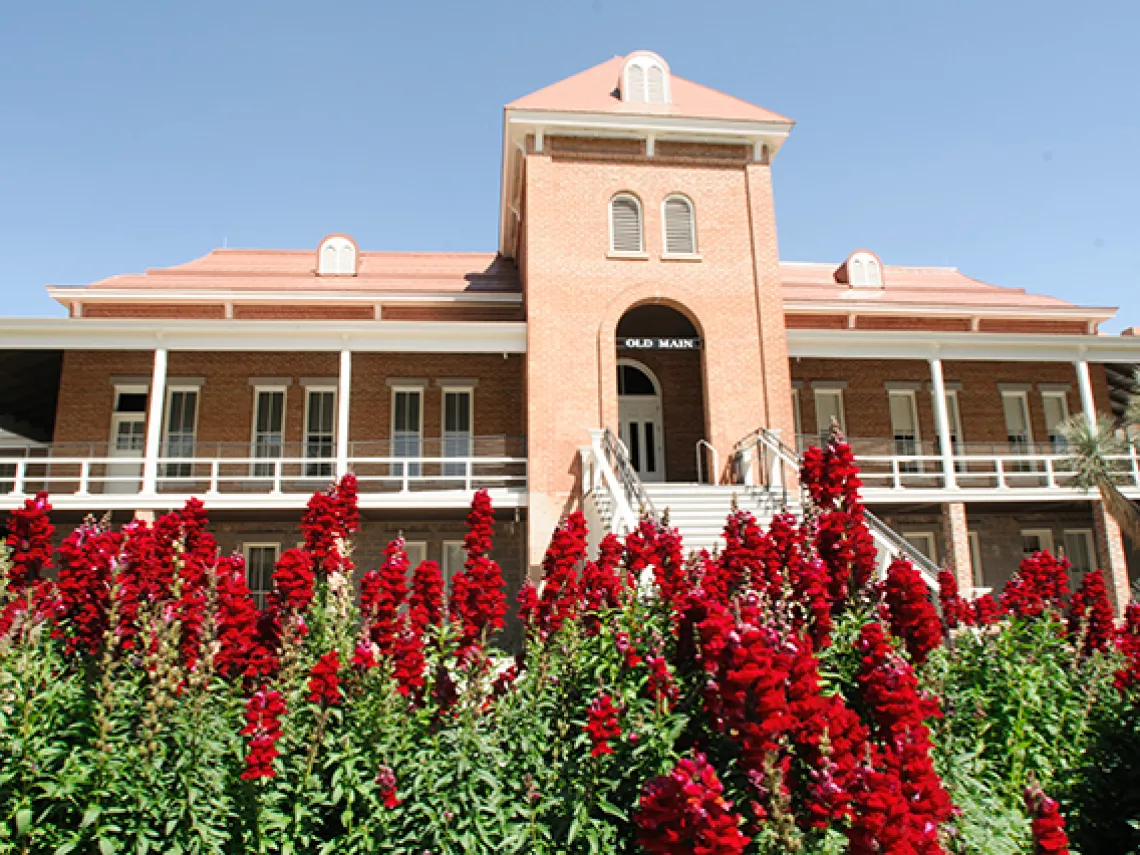For the Record: New Books, Conferences, Expert Insights on The Arizona Lawyer Apprentice Program, Environmental Law, Immigration Law and More
Catch up on recent University of Arizona Law faculty accomplishments

News
Dysart’s Supreme Court Counting Book Publishes
Assistant Director of Legal Writing & Clinical Professor of Law Tessa Dysart’s new book, “The Supreme Court Counting Book,” published in July. The book, dedicated to her youngest child who initially struggled to count to 10, features images of the Court and its history.
Legal Writing Faculty Attend the Legal Writing Institute Biennial Conference
Legal writing faculty members represented University of Arizona Law in Indianapolis at the Legal Writing Institute Biennial Conference. Faculty members presented, moderated, helped coordinate bench and bar offerings, served key roles on the conference planning committee and hold national leadership positions in the organization.
Media
Apprentice program seeks to fix Arizona's 'legal desert' by boosting those who narrowly failed bar exam
Tucson Sentinel
July 29, 2024
Jessica Findley, director of bar and academic success and professor of practice at Arizona Law speaks about the Arizona Lawyer Apprentice Program, which will attempt to fill the access to justice gaps by giving aspiring lawyers who narrowly missed passing their bar exams a chance to get experience before getting their own law licenses.
Justin Pidot: Manchin’s Latest and Last Run at Promoting Fossil Fuels through a Permitting Reform Bill
Legal Planet
July 27, 2024
Professor of Law Justin Pidot, Ashby Lohse Chair in Water & Natural Resources and co-director of the Environmental Law Program, weighs in on the Manchin-Barrasso Bill and the importance of continuing to improve federal permitting and environmental review processes.
Arizona’s Proposition 314, authorizing local enforcement of federal immigration law, would face legal hurdles if approved
Cronkite News
July 24, 2024
A measure on the November ballot, Proposition 314, would make it a crime under Arizona law to cross the border illegally, allowing police to arrest anyone who can’t prove U.S. citizenship or legal residency and allowing state courts to order deportations. A similar Arizona law from 2010 – SB 1070 – triggered nationwide backlash and boycotts. Clinical Professor of Law Lynn Marcus, Director of the Immigration Law Clinic & Community Immigration Law Placement Clinic, is interviewed.
JD-Next: What Law School Applicants Should Know
US News & World Report
July 22, 2024
A rising alternative to the LSAT called JD-Next, developed by Arizona Law with support from AccessLex and ETS, may represent a new turning point in standardized testing for law school applicants.
Tucson Agenda
July 18, 2024
Following claims from two Southern Arizona candidates that linked immigration to the rise in Tucson’s homelessness, journalists from Tucson Agenda looked for evidence to back the claims. Clinical Professor of Law Lynn Marcus, Director of the Immigration Law Clinic & Community Immigration Law Placement Clinic, is interviewed.
These three words from 1922 are at the heart of the latest Colorado River clash
KUNC-Radio
July 15, 2024
Established in 1922, the Colorado River Compact dictates allocations of its water, which sustains 40 million people across seven Western states and parts of Mexico. Now representatives of Upper Basin States claim climate change prevents them from meeting their obligation to allow 75,000,000 acre-feet downstream over any given 10-year period. Regents Professor and Morris K. Udall Professor Emeritus Robert Glennon says the compact must be understood as a whole, not as a collection of individual provisions.
Nation at stake after Supreme Court overturns Chevron
The Arizona Daily Wildcat
July 15, 2024
In a contested 6-3 ruling, the U.S. Supreme Court threw out decades of precedent established under the Chevron doctrine, which allowed administrative agencies to make reasonable interpretations of ambiguous federal laws. Now judges will decide which regulations apply rather than scientists, economists or other experts. Professor of Law Justin Pidot, co-director of the Environmental Law, Science and Policy Program and general counsel to the White House Council on Environmental Quality, weighs in.
Five more law schools allow use of JD-Next for admissions
The National Jurist
July 15, 2024
The American Bar Association this spring granted five law schools permission to use the University of Arizona-developed admissions program JD-Next, pushing the number of campuses permitting applicants to bypass the Law School Admission Test or GRE to 57.
Arizona AG Abortion Opinion May Influence Courts, Doctors
Law360
July 2, 2024
A new advisory opinion reassuring Arizona doctors they can use their good-faith judgment to provide an emergency abortion — despite the state’s 15-week ban — isn’t binding on the courts, but it may exert influence on judges and prosecutors. Mary Anne Richey Professor Emerita of Law Barbara Atwood, co-director of the family and juvenile law certificate program, said Mayes’ opinion cites a series of recent court decisions in other states.
